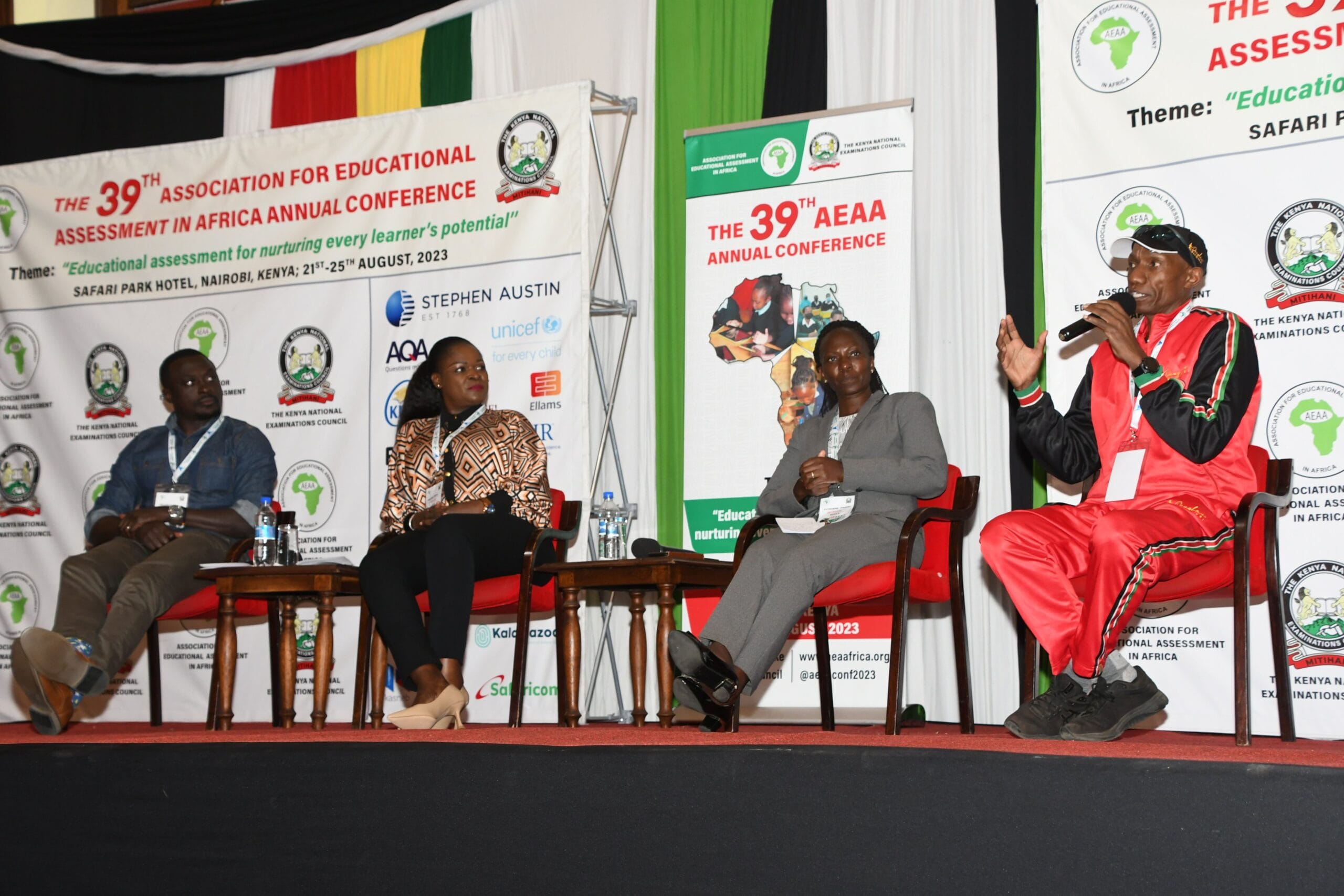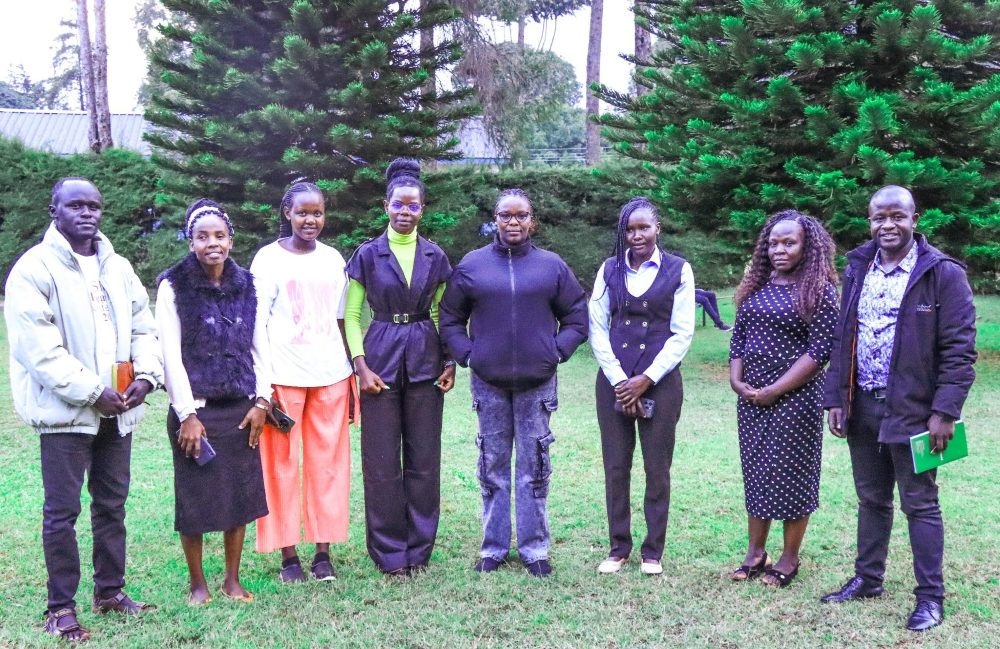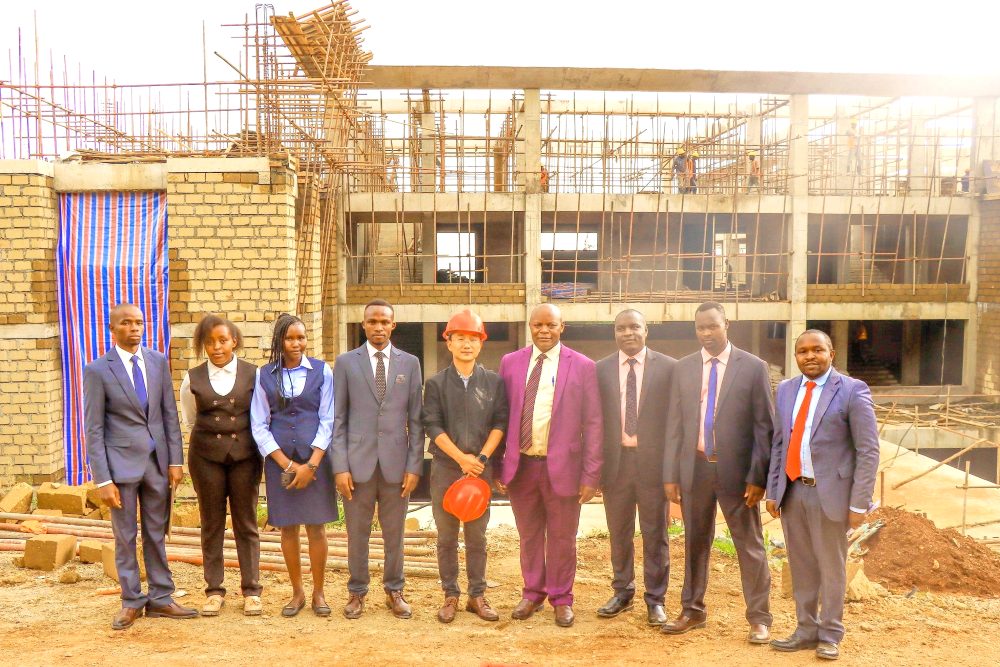Formal education does take into account talents and other abilities that examinations cannot test or determine.
This was the verdict that delegates at the 39th conference of the Association for Educational Assessment in Africa (AEAA) developed after listening to the stories of three legends in Kenyan music and sporting landscape last Friday.
Catharine Ndereva, a marathon runner, Douglas Wakiihuri, a long-distance runner, Ms. Susan Owiyo, Singer-songwriter, and Collins Injera, a former Kenyan rugby player each addressed the delegates, describing their agonizing journey to stardom.
All of them talked about facing mockery from parents, peers, and teachers—but their resilience, focus, and determination helped them overcome the odds and achieve their dreams.
They expressed concern that education focused more on academics, thereby frustrating the talents each child may have.
Ms. Owiyo said that although she studied music in high school, it didn’t help her much.
“We need to think about how we assess performing arts,” Owiyo noted, saying that there is no institution that supports talent to its fullest.
She said our culture is rich and policymakers need to explore ways of monetizing it.
Mr. Wakiihuri said that children needed guidance to discover and pursue their respective talents, regardless of the tough situations they faced.
“There is no one who doesn’t have a talent,” Wakiihuri said, evidently startling some of the delegates with the remark.
He also asked education authorities across Africa to recognize and reward prior learning as a basis for growth and development in whatever direction a child wants to take.
Ms. Ndereva lauded the government for the Competence Based Curriculum (CBC).
“If there is anybody excited with CBC, it is me,” she said, noting that the CBC recognized the multiple potential children are endowed with and which it seeks to nurture.
She asked governments in Africa to support co-curricular activities in their respective education systems for its potential to develop non-cognitive skills—otherwise called life skills—in learners.
“Co-curricular activities are where you face many challenges which are very important for personal growth,” Ndereva noted, adding that you can make a living out of something people never think much about.
Mr. Injera recounted the brushes he had with his Professor-father when he expressed interest in pursuing Rugby as a career.
He said his father only accepted his passion for Rugby when he saw me in a newspaper alongside big names.
“I wish I started supporting you guys much earlier,” he recalls his father telling him together with his elder brothers all of whom have interests in different sporting disciplines.
They all asked policymakers to create room for talents to bloom alongside academic pursuits.
The Principal Secretary for Education, Dr. Belio Kipsang said talents were beyond the purview of assessment.
Dr. Kipsang closed the 5-day conference on behalf of the Cabinet Secretary for Education, Hon. Ezekiel Machogu.
He said policymakers must design an assessment system that does not punish or frustrate learners with talents and other abilities traditional assessment systems did not take care.
“We must move away from the current practice,” Dr. Kipsang noted, saying common standards of assessment which recognized talents should be developed.
The Chief Executive Officer of the Uganda National Examinations Board, Mr. Dan Nokrach Odongo said that subjects that were not examined in national examinations were not taught.
“Nothing gets attention unless it is assessed,” he observed.
During the occasion, the Chief Executive Officer of KNEC, Dr. David Njengere was formally installed as the new President of AEAA, having taken over from President, Mr. Patrick Areghan, who is also the Chief Executive Officer, of West African Examinations Council, Nigeria.
In attendance included the Chairperson of the KNEC Council, Professor Julius Omondi Nyabundi, and the Executive Secretary of AEAA who is also the Chief Executive OFFICER OF, the Examinations Council of Zambia, Dr. Michael Chilala.
The next AEAA conference will be held in August, next year in Cape Town, South Africa.
By Our Reporter
Get more stories from our website: Education News
To write to us or offer feedback, you can reach us through: editor@educationnews.
You can also follow our social media pages on Twitter: Education News KE and Facebook: Education News Newspaper For timely updates.






